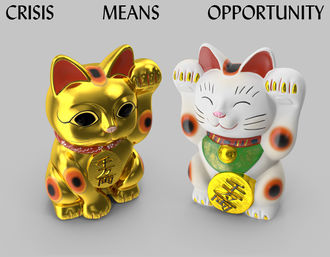User:Artemis gryllaki/Special Issue 7
< User:Artemis gryllaki
Revision as of 12:04, 7 September 2019 by Artemis gryllaki (talk | contribs)
Start up, Burn out: Life Hacks
Themes, Theory & Research
| Burn Out | Life Hacks | Entrepreneurship | Entreprecariat | ||||||||||
| Precarity | Productiviy | Procrastination | Efficiency | Insecurity | |||||||||
| Flexibility | Labour Rights | Security | Gig Economy | 9-5 | |||||||||
| Alexa | Optimisation | Life Coach | Positive Affirmations | Ever-Working | |||||||||
| Eliza | Hackivism | Hackerspace | Artificial Intelligence | Get Things Done | Siri |

Entreprecariat is a portmanteau that combines entrepreneurialism and the precariat. As such, it captures both as coexisting axes of a semiotic square of the social. The entreprecariat refers to the reciprocal influence of an entrepreneurialist regime and pervasive precarity.
The entreprecariat is the semi-young creative worker who put effort in her own studio while freelancing for Foodora, the manager on the verge of a burnout, the employee who needs to reinvent himself as soon as his short-term contract is over, the fresh graduate who struggles to repay his loan with a top-notch university. As Guy Standing maintains, "the precariat consists of those who feel their lives and identities are made up of disjointed bits, in which they cannot construct a desirable narrative or build a career, combining forms of work and labour, play and leisure in a sustainable way."
Entreprecariats share the urgency to optimize their time, their mind, their body, and their soul in order to deal with precarious conditions, be they financial, psychological, affective, physiological, temporal, geographical. Lifehacker.com well represents this urgency, since it offers optimization techniques encompassing everything, from the work sphere to life as a whole. In the entreprecarious society, everyone is an entrepreneur and nobody is stable.
The entreprecariat is the semi-young creative worker who put effort in her own studio while freelancing for Foodora, the manager on the verge of a burnout, the employee who needs to reinvent himself as soon as his short-term contract is over, the fresh graduate who struggles to repay his loan with a top-notch university. As Guy Standing maintains, "the precariat consists of those who feel their lives and identities are made up of disjointed bits, in which they cannot construct a desirable narrative or build a career, combining forms of work and labour, play and leisure in a sustainable way."
Entreprecariats share the urgency to optimize their time, their mind, their body, and their soul in order to deal with precarious conditions, be they financial, psychological, affective, physiological, temporal, geographical. Lifehacker.com well represents this urgency, since it offers optimization techniques encompassing everything, from the work sphere to life as a whole. In the entreprecarious society, everyone is an entrepreneur and nobody is stable.

For Millennials, a path deprived of detours is unrealistic if not outdated. It’s the very idea of a career characterized by constant uncertainty.
Those who are now twenty or thirty years old are intimately aware that the center of gravity of their professional identity is located within themselves, rather than in the companies with which they temporarily collaborate. They are the company itself or, to use Michel Foucault’s words, they act as “entrepreneurs of the self”. In his youth, Joseph Schumpeter, an influential Viennese economist, considered entrepreneurs to be a rare species that stands at the top of the social pyramid because of its precious ability to innovate.
“Fake it till you make it” is an expression that embodies the existential crisis of the entreprecariat.
Individuals become an incomplete product in constant optimization that resorts to a conspicuous optimism to present themselves as autonomous to others and to themselves. All this with the risk that, admittedly being the master of their own destiny, the responsibility for their own failures falls only on themselves.
Those who are now twenty or thirty years old are intimately aware that the center of gravity of their professional identity is located within themselves, rather than in the companies with which they temporarily collaborate. They are the company itself or, to use Michel Foucault’s words, they act as “entrepreneurs of the self”. In his youth, Joseph Schumpeter, an influential Viennese economist, considered entrepreneurs to be a rare species that stands at the top of the social pyramid because of its precious ability to innovate.
“Fake it till you make it” is an expression that embodies the existential crisis of the entreprecariat.
Individuals become an incomplete product in constant optimization that resorts to a conspicuous optimism to present themselves as autonomous to others and to themselves. All this with the risk that, admittedly being the master of their own destiny, the responsibility for their own failures falls only on themselves.
